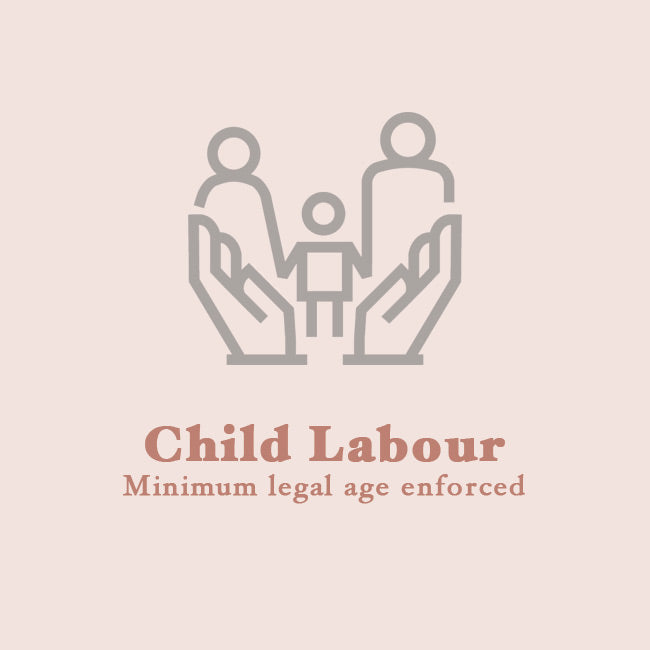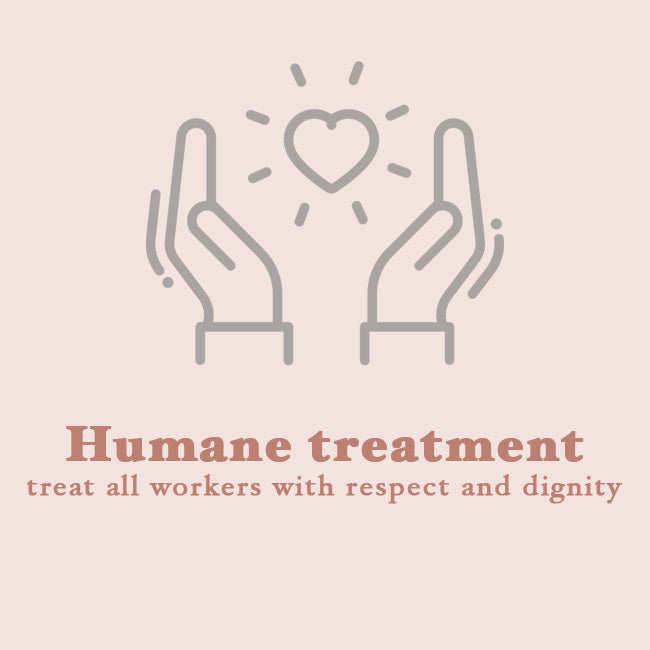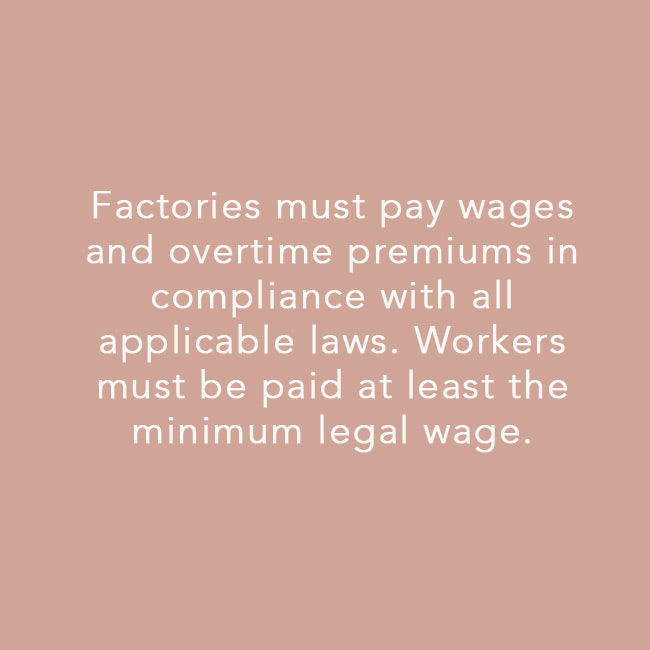2020-2021 Q2 SUSTAINABILITY REPORT

Transparency matters, because we want you to trust that what you buy makes a difference. Sustainability is at the core of everything we do, because we care about the health of people, planet and future generations. In the second quarter of 2020/21 we were tracking at 99% sustainable fibres, saving 58,404 plastic bags from landfill, off-setting enough carbon to be carbon neutral for domestic & international freight, and continuing on a mission to be circular by design. But from previous reports you know that we’re already scoring well in these areas. So, this quarter we are honing in on social sustainability by introducing you to our Artisan family.
We are devoted to expanding opportunities in some of the most vulnerable countries by addressing inequality, protecting the planet and working to ensure prosperity. When you purchase an Artisan made treasure, you are conserving traditional knowledge and positively impacting lives of future generations around the world. We are also shining the spotlight on supply chain transparency, which is critical to ensure protection of workers at every stage of production. Trust us, there’s some seriously good stuff in this report, so sit back, dive deeper and find out more about the progress we’re making.

| Artisan accessories |
This quarter we launched a new range of artisan made accessories. We believe in the importance of protecting and preserving traditional crafts, intrinsically interwoven with culture and history through generations. Empowering marginalised communities socially and economically. Respecting and valuing cultural heritage, capturing unique cultural richness and authenticity. Our range was made from natural materials sourced locally by artisans with minimal impact on the environment.
We wanted to share the stories of the artisans that made the collection with you. Let’s meet the makers:

What is your name?
Bunga Talya Quamilla
Where did you grow up?
In Cirebon, west Java.
From whom, or how did you learn your craft?
I learned to make the crafts from my mother, by watching her making the crafts like bags, accessories, key hangers, etc.
How has partnering with overseas brands to collaborate on artisan products helped your community?
I’m very pleased and proud to work with overseas brands for the items. This will boosts the spirits of the workers as well to support and grow the local group of artisans here and hopefully can accommodate more artisans to work with.
What is a regular day like for you?
I started the day by praying for the day, then start working at workshop making the items or buying material stocks for the workshop in the area. On the night time I’m preparing the package and deliver to the local courier in the area to the customers.
What does sustainability mean to you?
For the material terms it is to use materials which are environmental friendly. In related to the business is to keep the business alive to provide the workers by maintaining the quality of the items and developing new styles for the items.

What is your name?
Adis
Where did you grow up?
Kalumpang village, Kapuas, in the province of Central Kalimantan
From whom, or how did you learn your craft?
From my parents. It is mainly a woman's role, the wives spend a long time at home, tending the farms and collect rattan skins, slice and dry them while taking care of children. The learning is taught to young girls when they are 10-13 years old.
How has partnering with overseas brands to collaborate on artisan products helped your community?
From Central Kalimantan, we have to buy materials to Bali on shipment. If the brand sells well, we help the rattan farmers and our weavers, with their income.
What is a regular day like for you?
I live in Bali with my wife and 8 years old son, we have a shop selling rattan-woven handbags, ladies bags, travel bags and some baskets and floor mat - all from my village - Kapuas. I open my shop at 8 and clean around shop, my wife goes to buy supplies and take our son to school (but not anymore with COVID19) we help him with online teaching.
What does sustainability mean to you?
It means we must live without destroying our nature. Our ancestor in our island, Kalimantan - teach us to respect nature and the nature will bring us back our food (that means, we sell our products and the income puts food on the table).

Frida Straw Bag: Launching soon...
What is your name
My team have Charuayporn , Awe Parnsomboon, Lumpon Parnsomboon, Bunjerd Kantuam , Nuntakarn Kantuam my team had 30-40 person for weaving (age period 35-80 years old).
Where did you grow up?
We are local people of Central Thailand.
From whom, or how did you learn your craft?
We learn from grandparents who have been passed down through generations. First, weave bamboo and develop into water hyacinth.
How has partnering with overseas brands to collaborate on artisan products helped your community?
For collaboration with overseas brands, it helps my team meet the standards. And experienced.
What is a regular day like for you?
Weaving this is my main job except for the farming season. On farming season, we have to farm and return to weaving in the evening.
What does sustainability mean to you?
This weave the bag is important for our family. We can weave and take care of our parents, sons or grandchildren. Some families don't have to go to work in the capital. They can work from home. Then we have to teaching children and those interested in the event. Keep this knowledge. We are not afraid of the coming of machines product. Because that makes this craft product an interesting place.
What is your name?
My team have Somjit, Prachya , Tuenjai , Noon , Sompong, Boonyang, Thongdang my team had 20-30 person for weaving (age period 30-70 years old)
Where did you grow up?
We are local people of Northeast of Thailand
From whom, or how did you learn your craft?
We learn from grandparents who have been passed down through generations. First, weave basket with water hyacinth and develop into slippers
How has partnering with overseas brands to collaborate on artisan’s products helped your community?
We are proud to cooperate with global brands and hope my products will make more people to know. And hope my local has more orders and revenue.
What is a regular day like for you?
Regular day, we weave slippers and grow vegetables. If we have a lot of orders we have to divide the team. Men grow vegetables and women weave slippers.
What does sustainability mean to you?
Water hyacinth is a weed and a sustainable fashion. These slippers can massage and save the world. We will continue to teach the local children to maintain this knowledge.

| We have a strict code of conduct in place. 100% of our Tier 1 suppliers (garment manufactures) have signed our Code of Conduct |

 
 
 
 
 
 
 
 
 
|

| Percentage by fibre category | |
| Heroes 4% | Lenzing Tencel, Linen, Hemp, Revive - fabric off-cuts |
| Rising Stars 95% | Lenzing Ecovero, Organic Cotton (GOTS), Mechanically recycled nylon, Econyl |
| Work in Progress 1% | Other: Polyester and elastane |
| 99% of the fibres used this quarter were sustainable |
By using Econyl in place of generic nylon we have recovered 66.70kg of waste including 16.6kg fishing nets from the ocean


| By using sustainable fibres in place of generic fibres we have reduced our environmental impact: | ||||
| Fibre | Global Warming (kg Co2) | Eco-toxicity (kg P04 eq) | Water Scarcity (gallons) | Abiotic Resource Depletion (MJ eq) |
| Econyl in place of genric nylon | 1,745.67 | 269.48 | -8767.86 | 2,397.61 |
| Lenzing Ecovero in place of generic viscose | 27,119.45 | 22,896.55 | 3,416,513.84 | 19,861.27 |
| Organic Cotton in place of generic cotton | 653.24 | 4,466.61 | 7,226,999.7 | 319.56 |
| Recycled nylon in place of generic nylon | 185.75 | 28.67 | -932.52 | 255.13 |
| Lenzing Tencel in place of generic lyocell | 798.1 | 563.5 | 77,711.49 | 365.7 |
| Total | 30,502.21 | 28,224.81 | 12,880,073.39 | 23,199.27 |
The process of mechanically recycling nylon unfortunately requires more water than generic fossil fuel based nylon however the reduction in greenhouse gasses, eco-toxicity and resource depletion off-sets this.
We have saved an estimated total of 12,880,073.39 gallons of water by using sustainable fibres instead of generic fibres.
| Definitions: |
Water is becoming increasingly scarce, due to excessive & unnecessary use and wastage.
Abiotic Resource Depletion
Abiotic depletion refers to the exhaustion of natural (non-living) resources. The main concern is the ecosystem’s health and how it is affected by the extraction of minerals and fossil fuels.
Global Warming (CO2)
Global warming is a serious environmental issue, contributing to the increase in Earth's average surface temperature due to rising levels of greenhouse gases.
Eutrophication (eco toxicity)
Eutrophication is when a body of water becomes overly enriched with minerals and nutrients due to run-off from the land, which causes a dense growth of plant life. This can eventually lead to water bodies that can't support aquatic life.
Abiotic Resource Depletion
Abiotic depletion refers to the exhaustion of natural (non-living) resources. The main concern is the ecosystem’s health and how it is affected by the extraction of minerals and fossil fuels.



| International | |
| Sea freight | 0.36 tonnes of C02 |
| Air freight | 1.43 tonnes of C02 |
| Road freight | 0.58 tonnes of C02 |
| Total | 2.37 tonnes of C02 |
| Domestic | |
| Total | 93.08 tonnes of C02 |
| Total C02 Emissions Q2 2020/21 = 95.45 tonnes of C02 |


Fabric that ends up on the cutting room floor is usually destined for landfill. Our Arnhem Revive initiative is all about turning fabric off-cuts into beautiful, fabric efficient accessories to match back with your Arnhem treasures. The idea was inspired by our makers on one of our visits to their factories, we saw our bright floral fabric remnants crafted into pin cushions, scissor lanyards and fabric weights.
This initiative not only allows us to repurpose fabric from waste but also provides more work and income for our makers.
In Q2 we saved around 8,473m worth of fabric offcuts and transformed them into 2075 stunning revive accessories that we know you love. Circularity at its very best.

